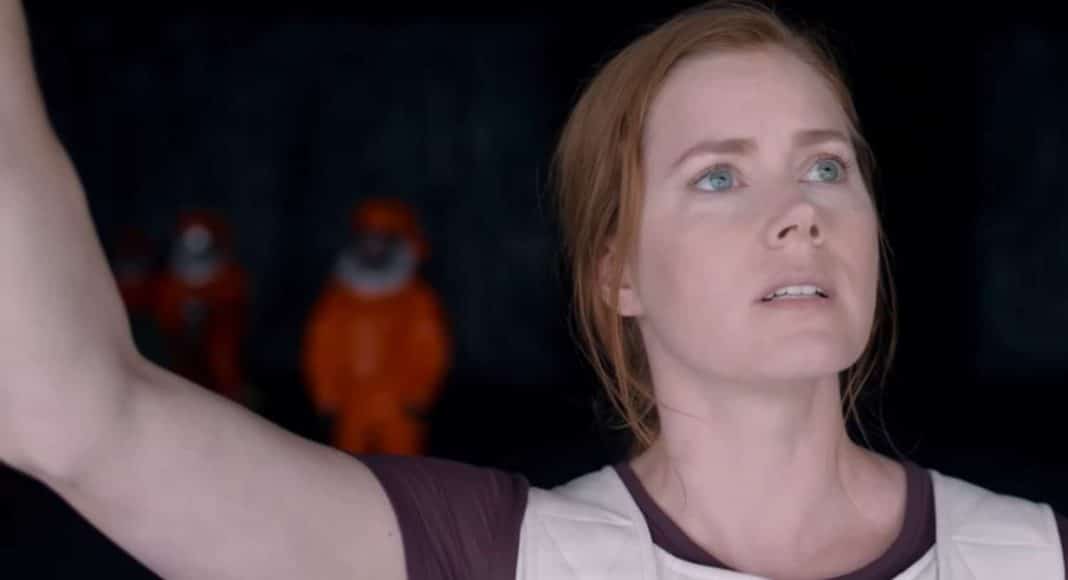About halfway through Tom Ford’s creative process, interrogation thriller Nocturnal Animals, one character describes another’s eyes. “You both have the same sadness in your eyes, you and your mother,” Jake Gyllenhall’s Edward says. Normally this would be corny and cheap,—a writing shortcut covering up acting deficiencies—but when Edwards says this to Susan, played by Amy Adams, it serves as confirmation to something only flickering underneath Susan’s veneer up until this point.
We encounter this scene as a flashback; we know Susan and Edward are ex-husband and wife, and that Susan enacted some grief on Edward to fuel his writing a novel investigating that pain. The novel’s plot involves Texas good ol’ boy Tony Hastings and his family suffering a seemingly random act of road rage that ends in rape and murder. Tony teams up with the local sheriff to seek justice, which fails, then vengeance.
Since we experience this novel through Susan’s eyes, who knows it’s some metaphor for their past relationship, Gyllenhall plays both Edward and Tony, purposefully blurring the fictional and real versions of the character. (Hilariously so, Isla Fisher plays Laura Hastings, the novel stand-in for Adams’ Susan. They really are the same person!) As the matroyshka doll movie progresses, you wonder what suffering Susan inflicted on Edward to stir the raw, perverse violence seen in the novel.
Let’s Talk About Those Eyes
So when Edward suggests the sadness in Susan’s eyes, it’s the first time we see their characters interact. We’re watching them fall for one another, learning why their future demolition might be worth it in the first place. Just as Edward pinpoints Susan’s “sadness,” Adams deftly reveals it, that sadness surfacing to those glacier blue circles. But almost as quickly as the vulnerability shows, Adams swallows it up, almost like a mask slipping before she hurriedly resumes the position.
Whereas other actors would utilize facial tics or their voice to convey the emotion, Adams focuses all the action in her eyes. The results are both ravishing and devastating. Adams tells us everything and nothing about Susan within that one moment: she’s empty inside. The heavy makeup the future Susan wears is, and always has been, a cover-up.
The greatest actors also possess the most emotional eyes—Marlon Brando had wells for eyes—and Amy Adams is no different. Other great actresses of her generation like Kate Winslet and Cate Blanchett own such optics, but neither are as mutable and expressive as Adams’. She can go from enchanting optimist (Big Eyes, Her) to ferocious powerhouse (The Master, The Fighter, American Hustle) all with a look. If you haven’t yet realized, Amy Adams is one of the best, most versatile actors currently alive.
But she hasn’t been quite as vulnerable, quite so exposed as she’s been in Nocturnal Animals and Arrival, two movies released within a week or so of one another. You wouldn’t be out of line mistaking them as one giant showcase for Amy Adams instead of two distinctive, very different films.
‘Arrival,’ Different But Still Staggering
Arrival and its director Denis Villeneuve asks something much different from Adams. She plays a linguist tasked with deciphering and translating an alien race, who have just landed on Earth. No one knows what they’re saying; fear and cynicism of anything other infect humans around the world. Talks of blowing the bastards out of the sky circulate on news channel and wartime backrooms. Kill or be killed, goes the thinking.
But in typical sci-fi protagonist fashion, Adams’ Dr. Louise Banks, along with Jeremy Renner’s Ian Donnelly, are the lone souls reaching out, attempting to understand. Louise gets the aliens to write their language on a glass wall. Complete sentences and thoughts are represented by circular-looking symbols with various details to express meaning.
This isn’t the only puzzle the film presents. When we first meet Louise, she seems a lonely professor, rocked by the death of her child, and divorce from her husband. As Louise decodes the alien language, she suffers from what seems like flashbacks, painful memories bubbling up. You believe the cause is the aliens, her interactions with the creatures and the pressure she’s under almost instituting a mental breakdown on Louise’s part.
The big twist is that this isn’t the case. Throughout the film, Adams’ emotions seem scattered, yet resilient and hopeful. If only she tries harder, sacrifices more of herself, she can save the day. But when she learns the truth, why the aliens are here, why memories of her deceased daughter won’t leave her alone, it’s enough to understand her character going insane. Louise responds with grace, giving into the giant mystery of it all. Again Adams communicates this almost solely through her eyes, a peacefulness mixing into her blue spheres. That she doesn’t cry is enough to make you want to.


